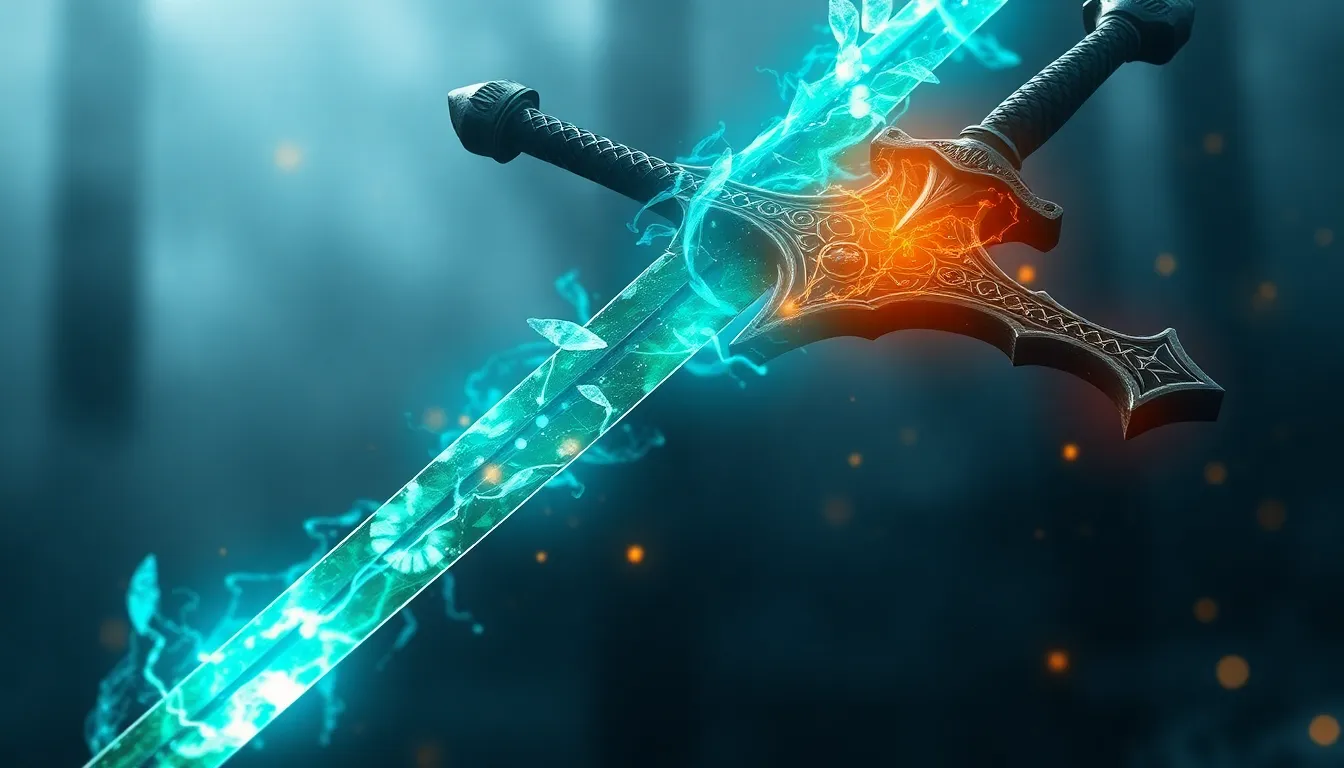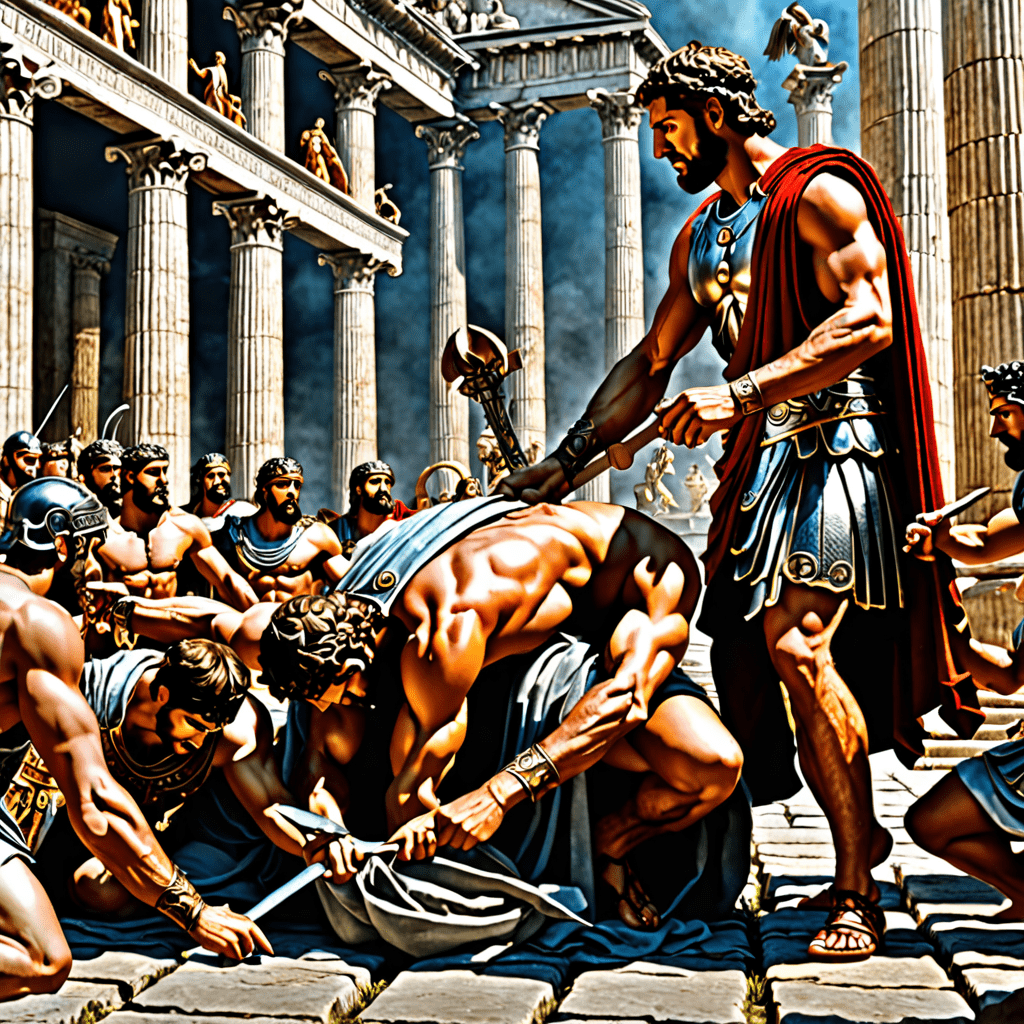The Enchanted Edge: The Power and Purpose of Mythical Swords
I. Introduction to Mythical Swords
Mythical swords hold a revered place in literature and folklore, often embodying the ideals, struggles, and triumphs of heroes throughout history. Defined as legendary weapons imbued with supernatural qualities or deep symbolic meaning, these swords transcend mere physical objects to represent the essence of power and fate.
Across various cultures, mythical swords have evolved into symbols that reflect societal values, individual aspirations, and collective fears. From ancient epics to modern narratives, the allure of these weapons reveals humanity’s enduring fascination with heroism and adventure.
This article aims to explore the multifaceted power and purpose of mythical swords, delving into their historical context, symbolism, notable legends, and their impact on contemporary culture.
II. Historical Context of Mythical Swords
The origins of weaponry date back to ancient civilizations, where swords were not just tools of war but also symbols of status and authority. The craftsmanship involved in their creation often mirrored the cultural and technological advancements of the time.
As societies evolved, so did their stories. The evolution of swords in myth and legend reflects the changing values and aspirations of different cultures. Legendary blades often emerged from the historical context of real swords, infusing them with supernatural qualities that represented the ideals of the time.
Some notable historical swords that inspired mythical counterparts include:
- Joyce’s Sword: A famous sword from Irish folklore associated with the hero Cú Chulainn.
- Masamune: A legendary Japanese swordsmith whose blades are said to possess spiritual significance.
- Braveheart’s Claymore: A symbol of Scottish independence and valor.
III. Symbolism of Swords in Mythology
Swords are powerful symbols in mythology, representing authority, valor, and the conflict between good and evil. They often embody the spirit of the cultures from which they originate.
The duality of swords as both instruments of destruction and protection is a recurring theme in many myths. They can bring about death in battle or shield the innocent from harm, illustrating the complex nature of power.
In hero myths and epic tales, swords often play pivotal roles in the protagonists’ journeys, serving as:
- Tools for personal transformation and growth.
- Symbols of destiny and fate.
- Instruments of justice and retribution.
IV. Famous Mythical Swords and Their Stories
Several mythical swords have captured the imagination of audiences throughout the ages. Each sword comes with its own rich story and symbolism:
- Excalibur: The legendary sword of King Arthur, symbolizing divine kingship and the rightful sovereignty of Britain.
- Durendal: The sword of Roland, associated with loyalty and heroism in the face of overwhelming odds.
- Kusanagi: The Grass-Cutting Sword of Japan, representing the power to control nature and protect the nation.
- Other notable swords: Include the Sword of Gryffindor from “Harry Potter” and the Sword of Omens from “Thundercats,” each rich with their own mythos.
V. The Craft of Forging Mythical Swords
The creation of mythical swords is often depicted as a mystical process, steeped in ritual and tradition. The significance of the materials used—such as celestial metals, enchanted elements, or sacred waters—adds to the sword’s legendary status.
In various myths, legendary blacksmiths and craftsmen play crucial roles, often possessing otherworldly skills. Figures like:
- Hephaestus: The Greek god of fire and metalworking, known for creating divine weapons.
- Wayland the Smith: A legendary figure in Germanic and Norse mythology, renowned for his extraordinary craftsmanship.
- Masamune: The revered Japanese swordsmith who is said to have created swords with unparalleled sharpness and beauty.
VI. The Quest for the Sword: Themes of Adventure and Growth
Many heroic journeys center around the quest for mythical swords, illustrating themes of adventure, destiny, and self-discovery. The sword often serves as a catalyst for personal transformation, pushing characters to confront their fears and embrace their true potential.
Examples of such narratives can be found in:
- “The Lord of the Rings”: Where the sword Andúril symbolizes the unification of kingdoms and the fight against evil.
- “The Legend of Zelda”: Featuring the Master Sword, which serves as a key to Link’s growth and the restoration of peace.
VII. The Role of Mythical Swords in Modern Media
In contemporary literature, film, and video games, mythical swords continue to captivate audiences, often serving as powerful symbols of heroism and adventure. Their depictions influence popular culture, shaping perceptions of what it means to be a hero.
The evolution of mythical sword narratives in contemporary storytelling reflects changing societal values and concerns, with modern interpretations often exploring themes of:
- Identity and self-discovery.
- Power dynamics and moral ambiguity.
- The impact of legacy and heritage.
VIII. The Psychological Appeal of Mythical Swords
Mythical swords resonate with archetypal themes in human psychology, appealing to our innate desires for power, heroism, and destiny. These themes evoke strong emotions and connections, making the stories surrounding these swords powerful and compelling.
The allure of mythical swords often lies in their ability to:
- Represent a journey toward greatness.
- Embodiment of personal ideals and aspirations.
- Challenge individuals to confront their own challenges and fears.
IX. Cultural Interpretations of Mythical Swords
Different cultures perceive and integrate swords into their mythology in unique ways, reflecting their values and beliefs. Swords often play a vital role in cultural identity and national narratives, serving as symbols of freedom, justice, and honor.
For instance, in Japanese culture, the katana is revered not only as a weapon but also as a symbol of the samurai’s code of honor. In contrast, Western cultures often see swords as emblems of chivalry and knighthood, representing the ideals of bravery and loyalty.
Through these lenses, mythical swords continue to shape cultural identities and narratives, reinforcing the timeless connection between humanity and the enduring power of myth.




